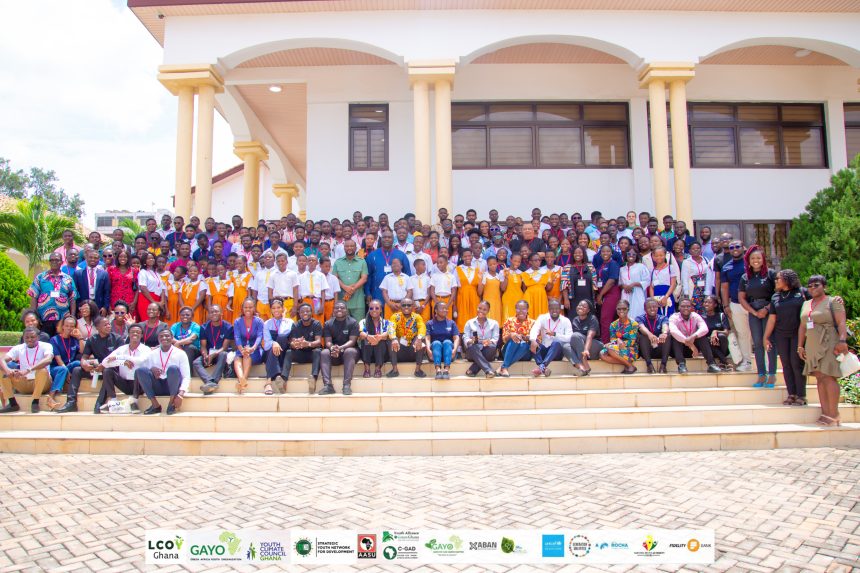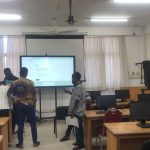Ghana, through its Nationally Determined Contributions (NDCs) has expressed intentions to minimize greenhouse gas emissions of 64 MtCO2e and adapt to climate change. Reaching this mark requires between US$ 9.3 and US$15.5 billion of investment to implement the 47 NDCs measures from 2020 to 2030.
Like pretty much any other country, Ghana’s agriculture, energy, and water sectors are largely dependent on climate-sensitive variables; rainfall, soil, and hydroelectric power. It is therefore no surprise that Ghana seeks to close the various climate-related gaps through its NDCs.
But how does a project so perfect on paper, actualize and manifest in the lives of a country’s citizens?
Pro-climate institutions – the Green Africa Youth Organization (GAYO) and the Youth Climate Council Ghana (YCC) prescribe two solutions – intergenerational dialogue and collaboration. This was demonstrated during the Local Conference of Youth on Climate Change (LCOY) that took place on October 25th, 2023 in Ghana.
Held under the theme “Accelerating Youth-Led Climate Actions for A Sustainable Future”, the event pulled together over 300 young people across Ghana, representing various youth organizations, governmental and educational institutions, and the private sector.
The conference was geared towards deepening the understanding on the climate emergency and mobilize political and economic efforts at the highest levels to advance climate action that will enable implementation of Ghana’s NDCs, and providing a platform for government, business, youth climate groups and other relevant stakeholders to collaborate, share experiences, and enhance their knowledge and skills on climate change issues.
Additionally, the conference showcased innovative youth-led climate change solutions to promote youth-led entrepreneurship and innovation for sustainable development. Ultimately, the National Youth Climate Action Plan was launched. This plan will be guiding the implementation of the National Youth Climate Statement.
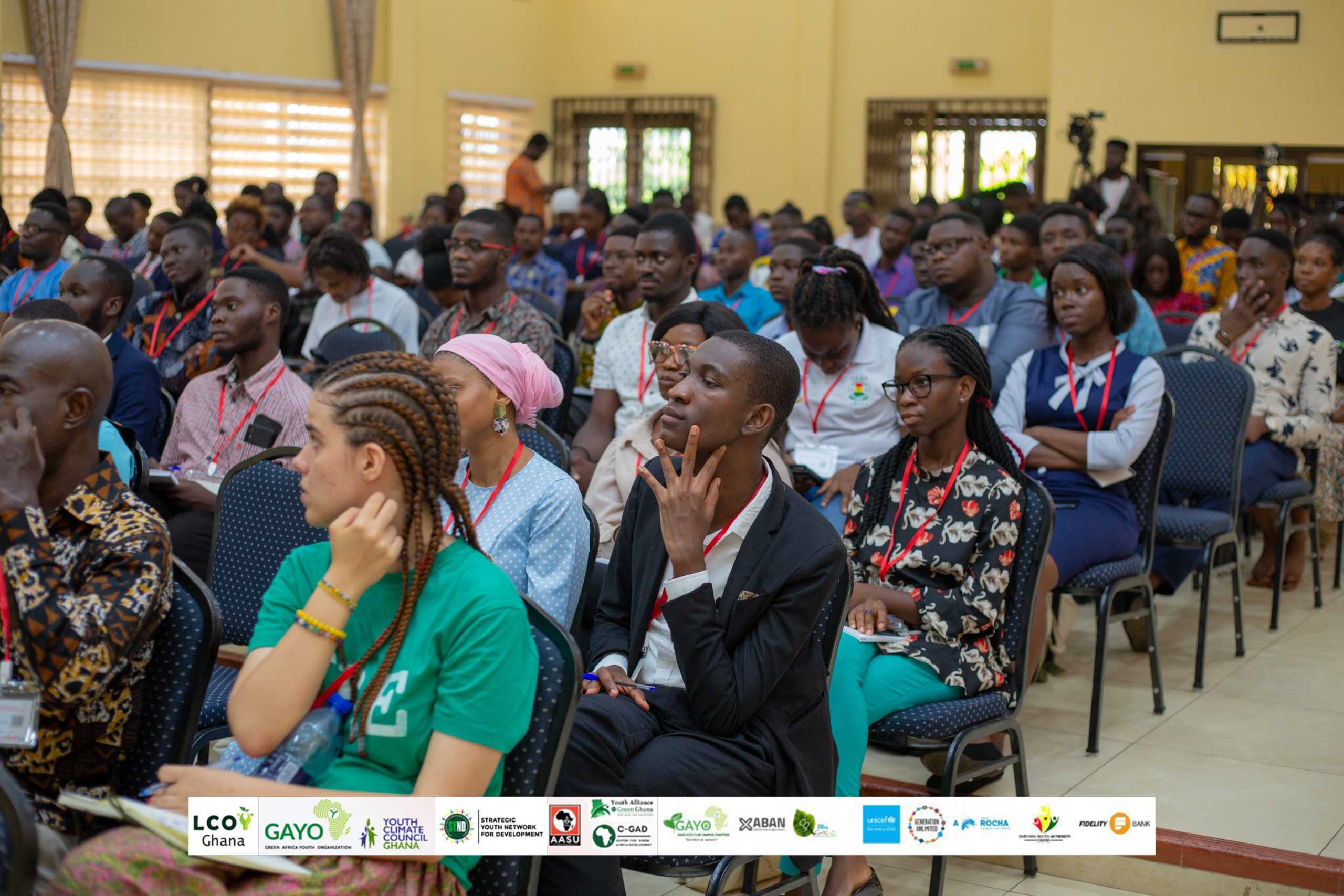
In a welcome address, Candy Darkwa, GAYO’s partnership and engagement officer underscored the need for youth to be actively engaged in the fight against climate change. She noted that young people are not only disproportionately affected by the impacts of climate change, but are also the ones who will inherit the planet and its problems.
The conference featured a keynote address by Hon. Pius Enam Hadzide, the CEO of the National Youth Authority (NYA). In his address, Hon Hadzide pledged the NYA’s commitment in supporting youth-led climate solutions. The NYA, he revealed, is developing several programs and initiatives to help young people develop the skills and knowledge they need to become effective climate change leaders.
Other interventions included a special address by Hon. Yves Hanson-Nortey, a Member of Parliament and a member of the Parliamentary Select Committee on Environment, Science, and Technology. Hon. Hanson-Nortey highlighted the importance of intergenerational dialogue in addressing the climate crisis and told participants not to let go of their bond with older generations. The link, he explained, provides the possibility of learning from their experiences and building a united front to combat climate change.
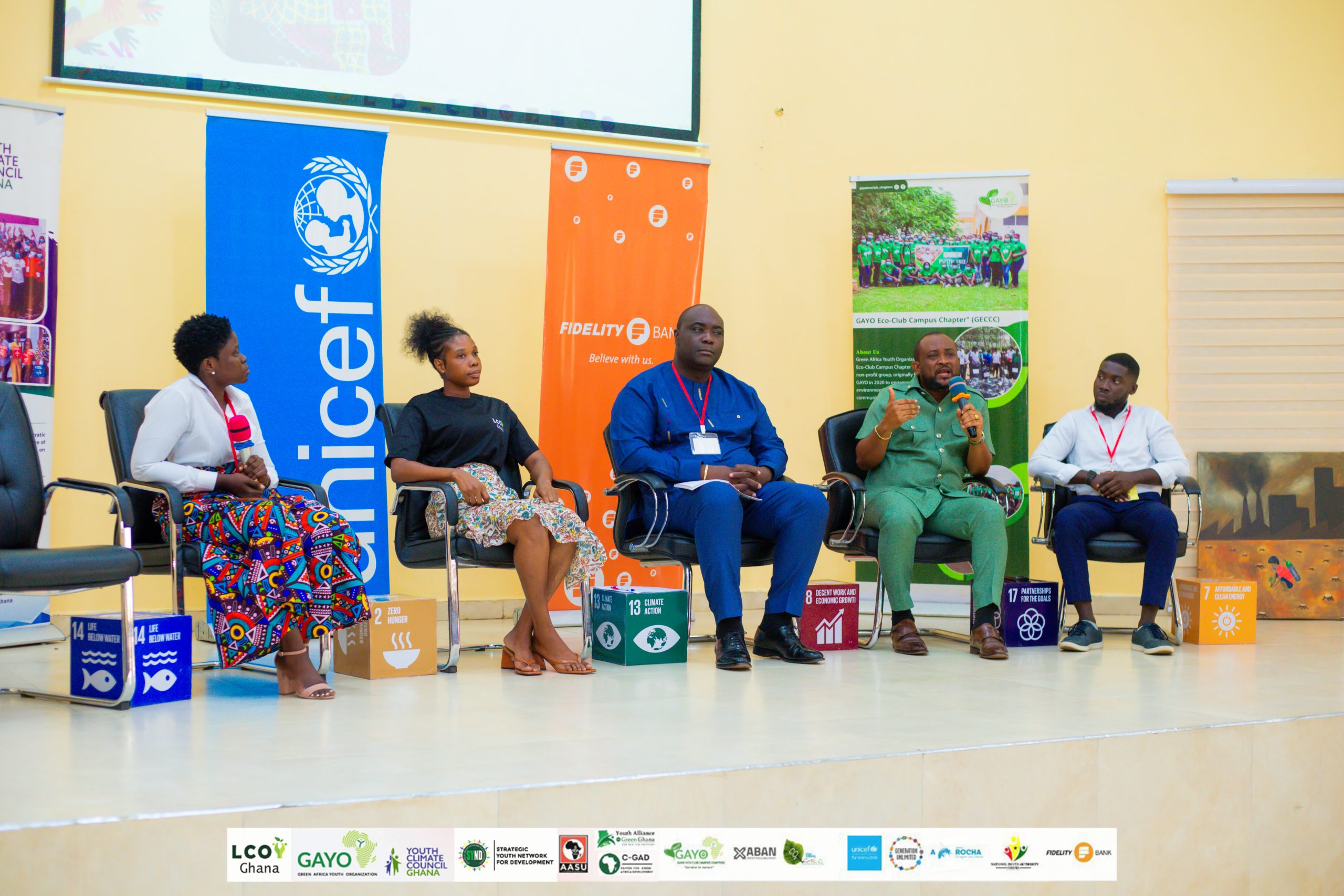
The National Youth Climate Action Plan
One of the key highlights of the conference was the launch of the National Youth Climate Action Plan (NYCAP). The NYCAP is a five-year action plan that outlines youth initiated projects under the key themes of Climate Change, Energy, Water, Sanitation and Hygiene (WASH), Biodiversity, and Agriculture and Food Systems. This, when implemented, would capacitate young people to scale actions to combat Climate Change in Ghana. The NYCAP also seeks to be a blueprint towards pursuing climate action whilst being closely integrated into the country’s national development objectives in line with various national policies, ensuring a comprehensive approach to sustainability.
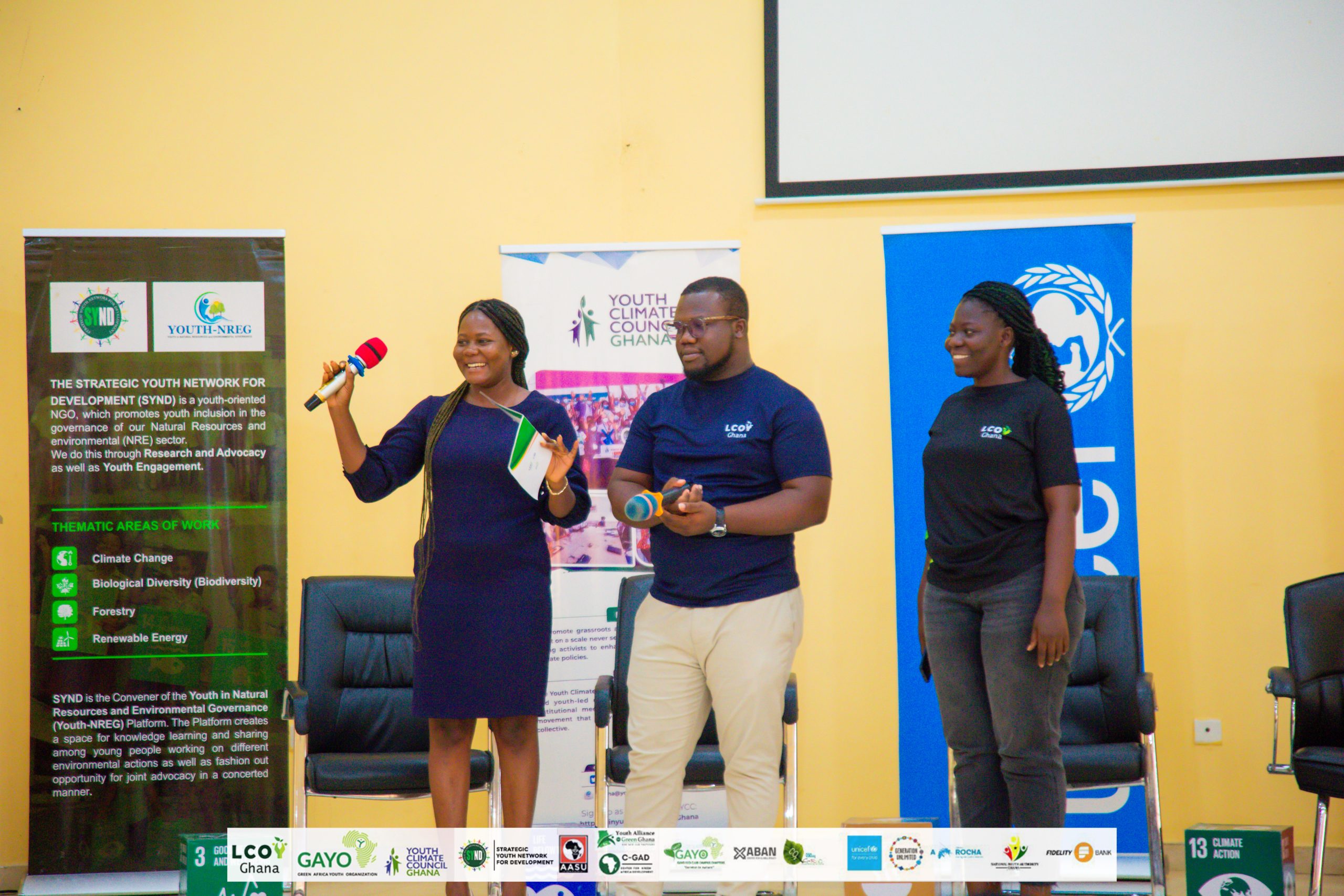
The conference folded with a technical dialogue on youth-driven action for Ghana’s climate goals, involving experts from academia, government, and the private sector. The dialogue highlighted among others, the burning need for the government and private sector to invest in youth-led climate initiatives, the need for educational institutions to integrate climate change education into their curricula, and for young people to be given more access to the corridors of power, guaranteeing increased participation in decision-making processes on climate change.
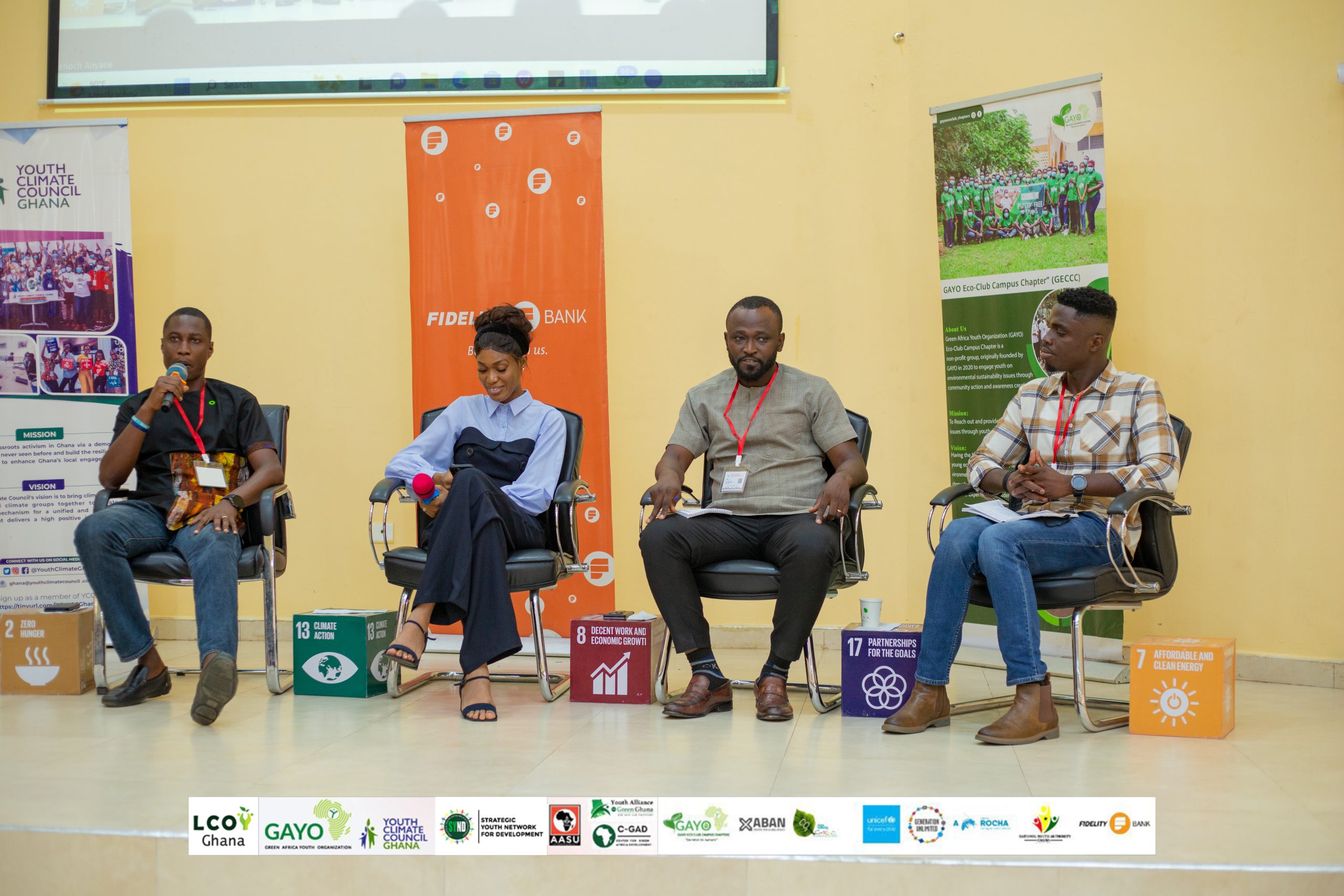
The conference featured three side events where other youth-led organizations where given a platform to host sessions that further exhibits youth solutions and innovations to address the adverse impacts of climate change in Ghana. The side events engaged and empowered young people for climate innovation and scaled impact. The conference also stood out for its inclusion of primary school children who participated in all high-level conversations and were very active during the Q and A sessions. GAYO, YCC, and other youth-led organizations believe that engaging and teaching young people on climate justice and crises, and how to be environmentally responsible, will help create active environmental and climate activists.
The conference received an exceeding participation, with support from partners like UNICEF Ghana and Generation Unlimited, Fidelity Bank, A Rocha Ghana and the Strategic Youth Network for Development (SYND).
We must remember that a collaborative and inclusive approach is essential in tackling the climate crisis. In this pivotal moment, a meaningful collaboration between all stakeholders and reform of national policies to support on-ground climate action through empowerment and overall readiness is paramount – building both intergenerational and intra-generational connections, we are able to leverage synergies that will positively shape our collective future.
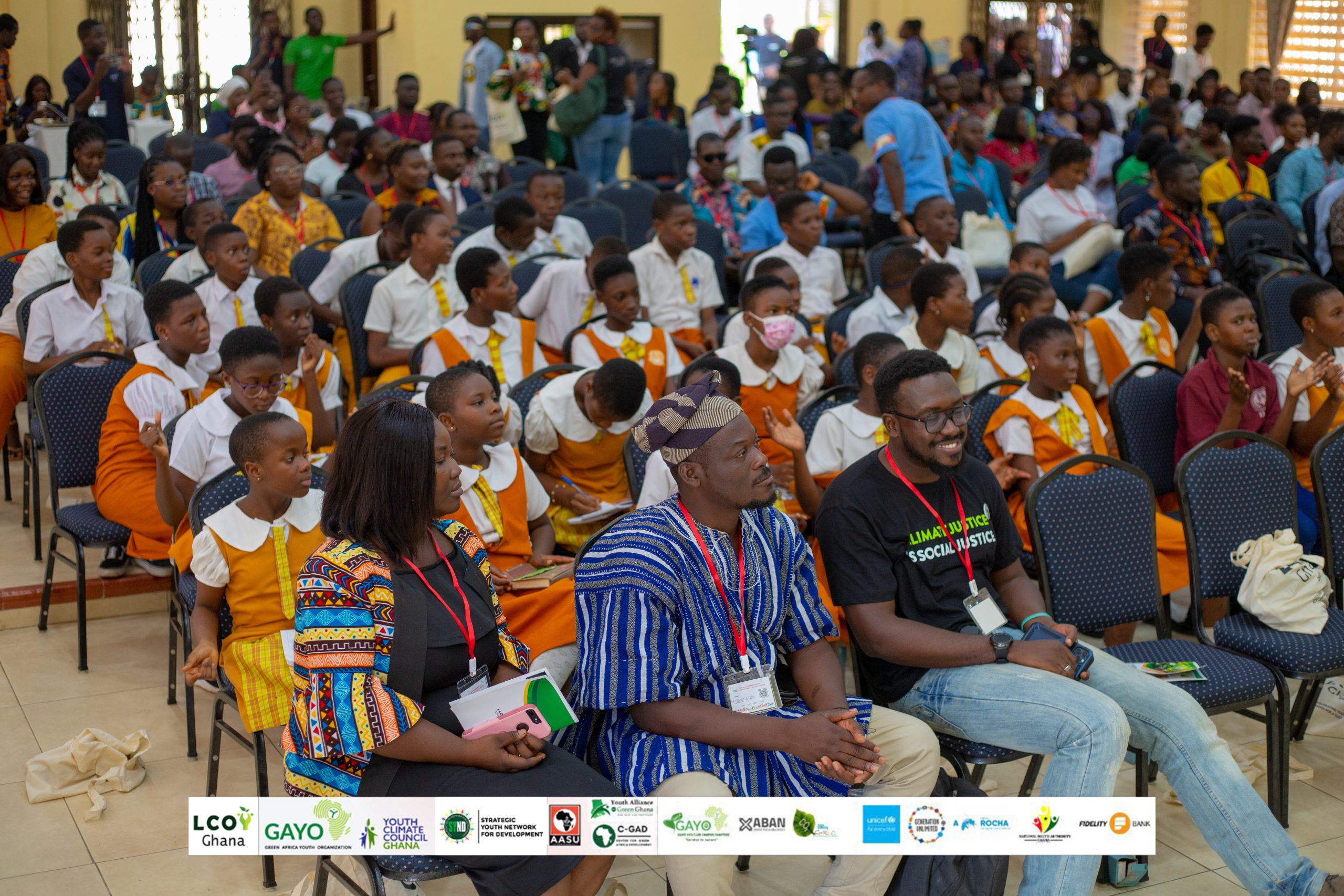
–
Article by : Minette Mpomwe | univers.ug.edu.gh

